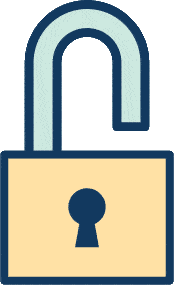About one percent of the world’s population lives with Autism Spectrum Disorder — and research shows that 100% of those people are as interested in romantic relationships as anyone else.
People with ASD often describe themselves as having “a brain that just works differently.” That uniqueness comes with a whole lot of special gifts, but it can also require special consideration when dating someone with autism.
That’s where this article comes in. We’re here to explain the key things you should know about having a relationship with someone who has autism. Keep reading to discover what makes these folks special and how you can love your autistic boo.
Embrace Their Interests
A common feature of autism is having special interests. In fact, Between 75% and 95% of people with autism have one or more hobbies, practices, or interests that they pursue with a special passion.
If you’re interested in dating someone with autism, there’s a good chance that they have a special or unusual interest. If they like you, they’ll want to share with you.
Though these interests can be as unique as the individual, some of the most common ones are:
- Movies, books, and shows
- Fictional characters
- Fantasy worlds
- Mechanics
- Cars
- Maps
- A hobby such as gaming, coding, or painting
- A discipline like farming, history, or computer science
A person with autism might build up an amazing body of knowledge on their special interest. It can be a touchstone to keep them grounded, too.
In a relationship, you’ll have a chance to learn about your crush’s interests through their eyes. You’ll be able to see the world in a new way through their passion.
At the same time, special interests can bring challenges too. You may need to clearly tell your date when you want to talk about something else. Otherwise, it can be hard for a person with autism to realize when you need a topic change.
Change Your Body Language Assumptions
If you met a new co-worker or acquaintance and that person spent the whole conversation avoiding eye contact, what would you think? Likely, you’d assume that they disliked you and weren’t enjoying the conversation.
Our assumptions about body language are deeply rooted social adaptations. It’s socially advantageous to be able to tell how someone feels just by looking at the way their body and eyes are moving.
However, if you’re dating someone with autism, it’s time to challenge those assumptions about body language.
People with autism tend to struggle with reading and conveying body language. For example, a person with autism might:
- Have trouble maintaining eye contact
- Have eye contact that’s too intense
- Cross their arms or frown, appearing unhappy or angry
It’s important to realize that, for someone with autism, their physical social cues don’t necessarily mean what you might assume they mean. Avoiding eye contact doesn’t mean they don’t like you. An intense stare or frown doesn’t necessarily signal aggression or anger.
Use Clear Communication
Most of us don’t realize it, but up to 90% of our communication isn’t through words. It’s through non-verbal cues like:
- Tone of voice
- Posture
- Facial expression
- Social context
- Body language
If you don’t have autism, you probably take these social cues for granted. You read and respond to non-verbals so easily that you don’t even notice that you’re doing it.
For a neurodivergent person, though, they can be an overwhelming puzzle. People with autism report that staying in touch with social cues demands constant — sometimes exhausting — attention.
When it comes to dating with autism, you can take some of the pressure off your significant other by using words to communicate. Verbalize feelings and desires that you usually express through body language. This helps your date understand and respond to your emotional needs that they can’t pick up on otherwise.
Try verbalizing things like:
- “I’m enjoying being on this date with you.”
- “I don’t like what you just said, because … “
- “I’d like to keep hanging out, but I want to do something different.”
- “I’m interested in you, but I’m not sure if you’re interested in me.”
- “Please ask me more questions about myself.”
It’s okay if this feels awkward at first. It will probably take some practice for you and your date to develop a good communication rhythm.
Clear verbal communication helps your date stay in tune with your emotions. Plus, verbalizing your feelings is a great self-reflective practice for anyone to learn, so you’ll only benefit from this strategy.
Respect the Routine
We all need routines. They organize our day, help us predict what’s coming next, and slash our stress. In other words, routines protect our mental health.
For people with autism, routines are even more important. Life can feel especially overwhelming to someone with autism. Routines and rituals keep life predictable, organized, and safe.
When you’re dating someone with autism, it’s crucial to understand that their routine isn’t just a personal preference. It’s a key strategy to help them manage daily anxiety and stress.
This might mean that your date has to:
- Go home at a certain time to check that the door is still locked
- Eat food in a specific order
- Wear certain clothes
- Organize little things
Respect, support, and join in their routine however you can. Recognize that sudden schedule changes can be detrimental to your date’s mental health. Give them the time they need to complete their routines, and you’ll have a happy, relaxed date to spend time with.
Dating With Autism
Living with autism comes with an incredible range of gifts. If you’re attracted to someone with ASD, you’ll be in awe of their unique mind and heart.
Dating someone with autism doesn’t have to be intimidating. With these tips, you’ll know how to treat your autistic date with consideration and respect.
If you’re ready to meet someone with interests and abilities like yours, join Special Bridge today. We’re a members-only community for those with special needs and abilities. Come connect with others like you!




1 comments:
Spence Bridgman
November 12, 2022 at 12:35 am
Great article! I’ve had friends in the past with autism and my friendships with them were strong and they taught me a lot about people with ASD. My prior experience with befriending people with ASD has made me more interested and opened to dating someone with ASD, let alone just being friends.